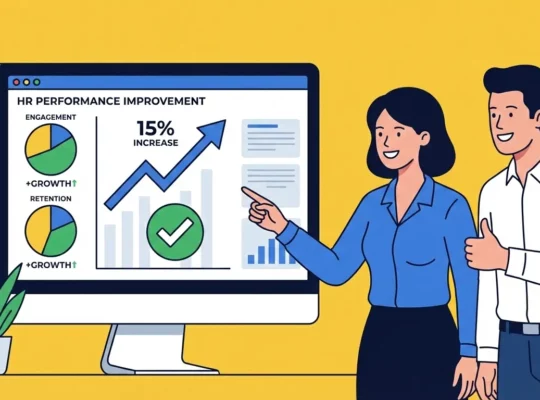A recent study by Review.jobs challenges common assumptions about what drives employees. Gone is the notion that salary is the sole motivator; instead, 57% of respondents prioritize more varied and stimulating tasks over a pay raise.
This shift, highlighted by Le Figaro, France’s oldest national daily newspaper, founded in 1826, reflects a broader evolution in the job market. As employees seek more than just financial rewards, companies must adapt to meet these changing employees’ expectations. The allure of better pay remains strong, particularly among younger generations, but the desire for autonomy and career progression is equally compelling.
So, is this a fleeting trend or a lasting transformation in the employee-employer relationship? Let’s delve into the study’s findings and explore the implications for employers.
The Evolution of Employees’ Expectations
For years, the notion that employees were primarily motivated by salary dominated the workplace. However, this study reveals that 57% of respondents now prioritize more diverse and engaging tasks. This desire for meaningful work experiences surpasses even the pursuit of higher pay, signaling a significant change in employees’ expectations.
Why this change? As the job market evolves, so do employees’ expectations. Following years of salary increases, attention has turned to the work itself. Employees want to be challenged, learn, grow, and avoid the monotony of repetitive tasks. Nicolas Marette, founder of Review.jobs, notes:
“The results are surprising, given the historical emphasis on salary. Yet, with two consecutive years of increases and a growing focus on intellectual growth, it’s clear that employees seek more from their work.“
In essence, routine is the enemy. Companies must rethink their approach to work organization to prevent boredom and turnover. This strategic shift could significantly impact the war for talent, as meeting employees’ expectations becomes crucial.
Employees’ Expectations: Beyond Financial Rewards
While varied tasks top the list of employee priorities, salary remains a crucial factor. 54% of respondents still consider pay essential, with a stronger emphasis among those under 35.
No surprise here: with inflation and rising living costs, financial security remains a major concern. However, career advancement has also become a key driver of employee engagement. 46% of respondents believe opportunities for growth are vital to their job satisfaction.
This need for progression is shared across generations, but more experienced employees place particular importance on it. As Le Figaro observes, seniors want to stay engaged and contribute actively to company projects.
This demographic wants to participate in projects that foster growth. The current discourse on increased employment rates for older workers may give them a sense of heightened legitimacy, making them feel more invested in their roles.
Nicolas Marette
In short, while money matters, it’s no longer the only motivator. To retain talent, companies must combine attractive salary policies with clear career advancement opportunities. An employee who feels stagnant will eventually look elsewhere, underscoring the importance of aligning with evolving employees’ expectations.
Autonomy and Employees’ Expectations
Beyond pay and career growth, employees crave autonomy. They want more flexibility and control over their work, seeking less micromanaging and more responsibility.
This aspiration for freedom reflects a deeper shift in the workplace, where trust between employers and employees has become a key retention factor. Remote work, though not explicitly mentioned in the study, naturally fits into this narrative. The ability to choose where and how to work has become a defining aspect of the employee experience. Companies offering flexible frameworks with well-defined remote work options directly address this desire for independence.
However, autonomy doesn’t mean isolation. Employees aren’t fleeing their companies; they want to invest differently. Nicolas Marette confirms:
“This study shows that employees are committed to their companies and want to evolve within them. It challenges the notion of demotivated workers and highlights their desire to engage in new professional projects.“
More autonomy, yes, but without losing the connection with the company. This presents a challenge for employers, who must balance freedom and collective engagement without falling into the extremes of total control or total distance.
A Wake-Up Call for Employers: Aligning with Employees’ Expectations
If this Review.jobs study sends a message to employers, it’s this: stop assuming that salary and financial benefits alone are enough to retain your teams.
The results reveal a profound transformation in employees’ expectations. Today, employees seek meaning, dynamism, and career advancement, and they won’t settle for just a well-stocked paycheck. Companies that grasp this will have an edge in attracting and retaining talent.
What are the key takeaways?
- Diversify tasks: boredom is a disengagement factor. Offering varied challenges boosts motivation and engagement.
- Don’t underestimate pay: while it’s not the only priority, it remains crucial, especially for younger generations.
- Offer real career advancement opportunities: stagnant employees will leave. Internal growth is a powerful retention driver.
- Encourage autonomy (and flexibility): the era of ultra-directive management is over. Employees want more freedom in their work, and remote work is a prime example.
- Transform employee feedback into a strategic tool: employee reviews are not just testimonials; they’re valuable insights for companies. Understanding what motivates or hinders employees allows employers to adjust policies and align with field expectations. Rather than enduring them, companies should structure and analyze these reviews to improve attractiveness and company culture.
To learn how employee reviews help align employers with employees’ expectations, check out our article here.
By understanding and addressing these evolving employees’ expectations, companies can foster a more engaged and productive workforce.





